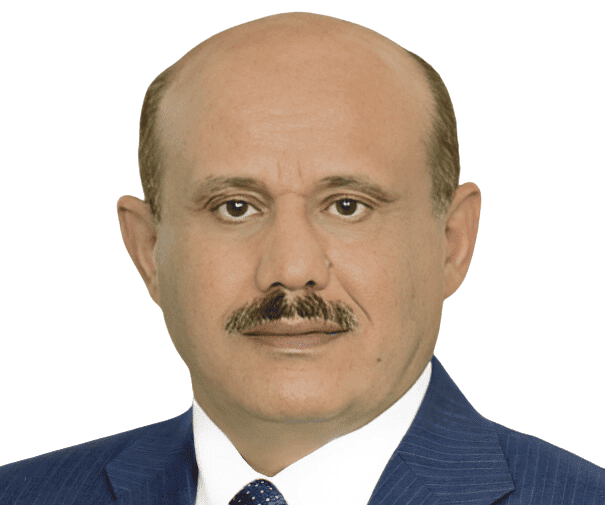Ahmed Ghaleb al-Maaqbi, governor of the Central Bank of Yemen, speaks to Global Finance about the country’s ongoing war and its impact on the economy.

Global Finance: Yemen has been at war since 2014. The country is now divided between the internationally recognized government, backed by a Saudi-led intervention in the south, and the de-facto authorities, controlled by Iran-backed Houthi leadership in the north. How does that affect the banking sector?
Ahmed Ghaleb al-Maaqbi: The war had a great negative impact on the Yemeni economy in general, and on the banking sector in particular. Not only did it destroy major economic infrastructure and badly affect the main roads, ports and airports, but it also led to massive displacements of population. As a result, gross domestic product was cut almost in half. Government revenue was immensely affected, and that is why the state was completely unable to service its debts to the local banking system in the form of treasury bills. In turn, the local banks were unable to fulfill their obligations to the depositors, and the public lost confidence in the banking system.
The division of country also led to a divided administration and contradictory policies. The Houthis adopted illegal actions and inconsistent banking standards that they imposed by force on banks working in areas under their control. This made it very difficult for banks to work properly, and eventually aggravated their problems to such an extent that some are likely to have to stop all activities.
GF: In 2016, the internationally recognized government relocated the Central Bank of Yemen (CBY) from Houthi-held Sanaa to its temporary capital Aden. Since then, Yemen has had two rival monetary authorities. How is central banking done in that context?
al-Maaqbi: There is only one internationally recognized head office for the Central Bank of Yemen (CBY), and it is based in Aden. The CBY performs all the functions of a central bank: It issues regulations, supervises the banking sector, interacts with the global financial system, has access to the Republic of Yemen’s accounts and reserves all around the world, and represents the country in all congregations.
The branch of the CBY in Sanaa, on the other hand, takes illegal actions and imposes incompatible banking standards with excessive force on all banks operating in Huthi-controlled areas. One of its latest laws—known as the “prohibition of usurious transactions”—will end up looting depositors’ money. In fact, such careless and reckless actions will eventually prevent a lot of banks from continuing their activities and destroy the entire banking system.
GF: What is the most important challenge for you?
al-Maaqbi: At this very critical stage, challenges are very numerous. One of the biggest we face is the central bank split. The branch in Sanaa continues to take actions that complicate and restrict the work of the whole banking system, starting with its ban on the newly printed currency notes. The result was not only a partitioned economy, the emergence of two different exchange rates for the same currency and a decline in foreign reserves, but also the accumulation of local and external obligations, a severe drop in state revenue—especially after oil exports were suspended—and heavy reliance on the Central Bank of Yemen to secure basic expenditures.
GF: How are Yemeni banks holding up, both in the domestic market and in the international financial system?
al-Maaqbi: Yemeni banks are striving to maintain activity at domestic level, even though it is minimal. Some local banks have enough influence to transact with regional and international lenders that can assist them in carrying out their operations.
In parallel, the CBY is attempting to normalize the relations of Yemeni banks with correspondent banks abroad by engaging them in the weekly FX auctions. This mechanism was agreed upon between us and these international banks and is compliant with the global banking standards and international anti-money laundering/combating terrorism standards.
GF: How do you see the future?
al-Maaqbi: The current situation in Yemen is very complicated. As for peace prospects, no one can predict future developments. There is hope that Yemen will be able to restore peace and security soon. But hope is only hope, and right now there seems to be no light at the end of the tunnel.



